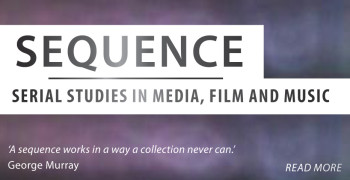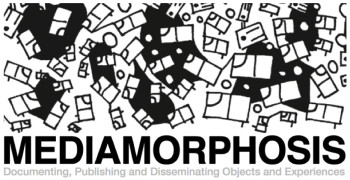
NARCOS: Screening “Latin Americanness”
Mediático is delighted to present an inaugural contribution to this website by Natália Pinazza. Pinazza is an associate lecturer at Birkbeck, University of London. She holds a PhD and MA from the University of Bath and a BA from the University of São Paulo. She undertook a UNESCO fellowship at the University of Ottawa, Canada. Her research interests include Latin American and Lusophone cinema and transnational film theory. She is the author of Journeys in Argentine and Brazilian Cinema: Road Films in a Global Era and co-editor of World Cinema Directory: Brazil, and World Film Locations: São Paulo. You can follow her on Twitter at @natiapina.
Narcos: Screening “Latin Americanness”
By Natália Pinazza
Since its premiere on the 2nd of September, the second season of Narcos, Netflix’s historical drama about Pablo Escobar, has again made waves both in Latin America and abroad. In a recent Facebook post, Escobar’s son Juan Pablo Escobar has noted 28 errors in the second season. Narcos, which is the result of a partnership between Netflix and Spanish language network Telemundo, can be situated within a broader context of recent Latin American cultural productions that focus on violent subaltern youths.
Two standout texts in this corpus of films, Brazilian blockbuster Elite Squad (2007) and its sequel Elite Squad: The Enemy Within (2010), are significantly directed by one of Narcos’ producers and directors, José Padilha and also star Wagner Moura, who has gone from the role of Capitão Nascimento, a Squad captain who fights drug lords in Rio de Janeiro favelas, to the legendary Colombian kingpin in Narcos. However, Moura’s physical transformation (he gained 40 pounds to play the role) has been less controversial than his version of Pablo Escobar with a Brazilian accent. In fact, Moura has openly admitted that he had to study Spanish to integrate into a cast formed by actors from across the continent, including the USA (Boyd Holbrook), Chile (Pedro Pascal), Costa Rica (Leynar Gomez), Colombia (Cristina Umaña, Juan Pablo Raba), Mexico (Stephanie Sigman, Raúl Méndez, Paulina Gaitan, Diego Cataño, Bruno Bichir) and Puerto Rico (Luis Guzmán). Further diluting the “authenticity” of the series, is Narcos’ bossa nova theme tune “Tuyo” by Brazilian singer-songwriter Rodrigo Amarante.
Whilst cross-border collaboration both in front of and behind the camera[1.Other directors of the series include Mexicans Guillermo Navarro and Gerardo Naranjo, Brazilian Fernando Coimbra, and Colombian Andrés Baiz] renders Narcos a legitimate Pan-American cultural product, the hodgepodge of Latin American accents testifies to the series’ preoccupation with a global rather than a domestic audience. For this reason, despite the patchy Colombian accents of many (but not all) of the actors and resultant issues of authenticity and historical accuracy, Narcos’ success raises important questions of how “Latin Americanness” is constructed in a transnational context. If, on the one hand, the series gives international prominence to cultural aspects of Latin America, including language, history and music, on the other, it complies with an aestheticized version of violence and poverty in evidence in a number of Latin American cultural products – for example, Amores perros (Alejandro González Iñárritu, 2000) and City of God (Fernando Meirelles and Kátia Lund, 2002), and the latter’s spin-off series City of Men (2002-2005). Clearly there are narrative and marketing strategies in Narcos that are internationally recognized in crime thrillers across the globe, including for instance, True Detective and Breaking Bad. Yet, the series needs to be acknowledged as part of a tradition that capitalizes on violence in Latin America through its depictions of slums and drug lords.
Questions of ethics regarding the representation of slums, have been widely explored in scholarship, most notably by Brazilian critic Ivana Bentes. Drawing on Glauber Rocha’s seminal text “An Aesthetics of Hunger”, and the fact that the favelas (slums) were a key site of representation for the Cinema Novo movement, Bentes coined the term “cosmetics of hunger” to refer to more contemporary approaches to the favela, in films like Padilha’s Elite Squad and Fernando Meirelles’s City of God (2002). She suggested these films were characterized by “a camera that surfs on reality, a narrative that values the beauty and the good quality of the image, and is often dominated by conventional techniques and narratives.”[2. (2003). “The Sertão and the Favela in Contemporary Brazilian Film.” In: Nagib, L. (ed.) The New Brazilian Cinema. London: I.B. Tauris, 125] Although Bentes’ argument provides insights into contemporary representations of slums, its application of the parameters of 1960 and 1970s’ revolutionary filmmaking to the analysis of films made in globalized and post-dictatorship context has proven controversial.
As in City of God and to a certain extent Elite Squad, Narcos’ violence is naturalized by realism, which juxtaposes actual footage (home movies, news reports) and images of real life individuals and events with fictive constructions. The series also draws attention to its historical content through the use of voice-over in the past tense. In Narcos, Steve Murphy, a DEA agent narrates in first person voice-over his experiences fighting the drug lords. Padilha employed a similar strategy in Elite Squad to create an empathetic relationship between the viewer and the “good” person, who sacrifices his personal life to fight the “evil” drug lords. Like Capitão Nascimento whose pregnant wife leaves him because of his professional choice, Murphy’s wife in Narcos goes back to Florida with their adopted baby as she does not feel safe in Medellin. However, in Narcos’ case, this narrative strategy has different implications as the narrator is an American character, who evokes an “us”, the “civilized English speaker” versus “them” the barbarians.
This dichotomy between “good” and “evil” is not only pertinent to the historical and political context of the story –season one in particular emphasizes the context of the latter years of the Cold War and the United State’s massive presence and intervention in Latin America at the time– but also to the mixing of languages in the dialogue. The choice of certain Spanish words in the English dialogues such as sicarios (hitmen) and gringos and the interweaving of Latin music with sequences of extreme violence perpetuate the exoticisation of the Latin American “other”. The only character who seems to transcend the binary between “us” and “them” and blur boundaries between Latin Americans and North Americans “gringos”, is agent Javier Peña (Pedro Pascal). Peña has native command of both languages, and despite working for the DEA, he does not convey the same “foreignness” that Murphy does both physically and culturally. He interacts “naturally” and even works collaboratively with local people. Perhaps this is a direct reflection of the choice of actor, Pascal, who was born in Chile, but raised in the USA and also known for other successful English speaking series such as Game of Thrones. Arguably, Peña’s bi-culturalism speaks to an increasing number of Latinos in United States audiences that resist the discursive tradition of the Latin American “other”. Bi-cultural characters like Peña thus raise questions about ongoing changes in the very profile of international audiences, in particular audiences from the United States. With its Latin American actors, directors, producer and predominantly Spanish language dialogue as well as its open acknowledgement of Escobar’s status as a Robin hood figure for Colombians of the popular classes, Narcos is a counter hegemonic text. At the same time, the series also complies with the mainstream genre conventions and global gaze of other internationally known representations of drug wars in Latin America.









